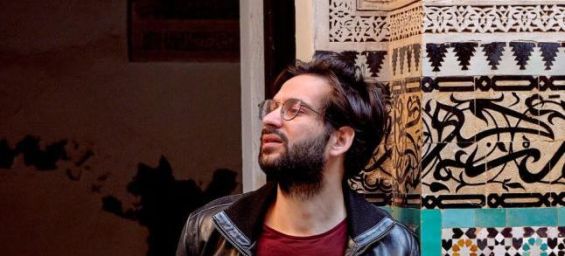While growing up in Fez, Morocco's cultural capital, you are surrounded by craftsmanship. Every corner of its ancient Medina is crafted by the hands of devoted, skilled, and patient artisans.
This is how young entrepreneur Ismail Tazi sees his hometown. Born and bred in Fez, Ismail was brought up in a family of artisans. His two great-grandmothers were hand embroiderers, his great-grandfather had a silk business, and a big part of his maternal family practiced pottery.
Carrying this love and passion for the artisanal world, Ismail took a rather different academic and professional turn. After finishing high school in Fez, he left for France to study business.
After a bachelor's degree at the Sorbonne University in Paris, he enrolled at Emlyon Business School, one of the most prestigious higher education institutions in France. As a student, the young Moroccan traveled to China for an exchange year in Shanghai and then to Arizona, in the United States.
He went on to undertake his first internship in finance in Washington DC, before embarking on a banking career in London.
Uniting artisans and tech enthusiasts
But a new career shift was on the horizon in 2020, when Ismail finally decided to leave finance and business to pursue his real passion. «In January 2020, I launched Trame, trying to find a common ground between technology, culture, design, and art», Ismail, who is currently based in Paris, told Yabiladi.

To him, the art studio is an «intersection» between craftsmanship, something he grew up seeing, and technology, a tool of today. His love for innovation was also behind this project.
«In Fez, you grow up seeing artisans everywhere, you also see that it is slowly changing. There is not much innovation going on», the entrepreneur said.
«We reproduce the same things, with the same color palette, the same designs, with the same materials and tools. And this was a big inspiration source for me, trying to think of how we can introduce innovation within this heritage».
And this is how Trame works, bringing technology as a solution to create art, especially Moroccan traditional art.

Trame helps bring artisans and tech enthusiasts together to create art, deco, and design items relevant to our time and age, Ismail explained.
3D printing and coding
The way Trame helps creators and artisans is by trying to find digital solutions and tools to create art. «For example, when creating a tapestry, we will collaborate with a coder, using coding as their artistic medium. Technology can also play a role in manufacturing; for instance, when producing 3D printed clay items, this would be considered digital manufacturing.»
In addition to convening artisans, digital artists, and tech professionals, the studio also develops concepts, prototypes, issues collections, photographs them, does communication campaigns, and organizes events to present these pieces of art and sell them.
Regardless of the medium or tool used to innovate craftsmanship, innovation is a must, Ismail argues. But sometimes change is met with resistance. «Some craftsmen refuse to try new ways, new techniques», Ismail said.

To him, this is not new, and more of a human thing. «But when you come with a plan, with a vision, and you create trust and respect, generally people want to try something new», he noted.
In addition to 3D printing, Trame has had products created with the help of other new technologies such as CNC machining and coding.
One of Trame's latest projects is a collaboration with three digital artists from the African diaspora who will be bringing their creations into the tangible world and exhibiting them by the end of the year.





 chargement...
chargement...













